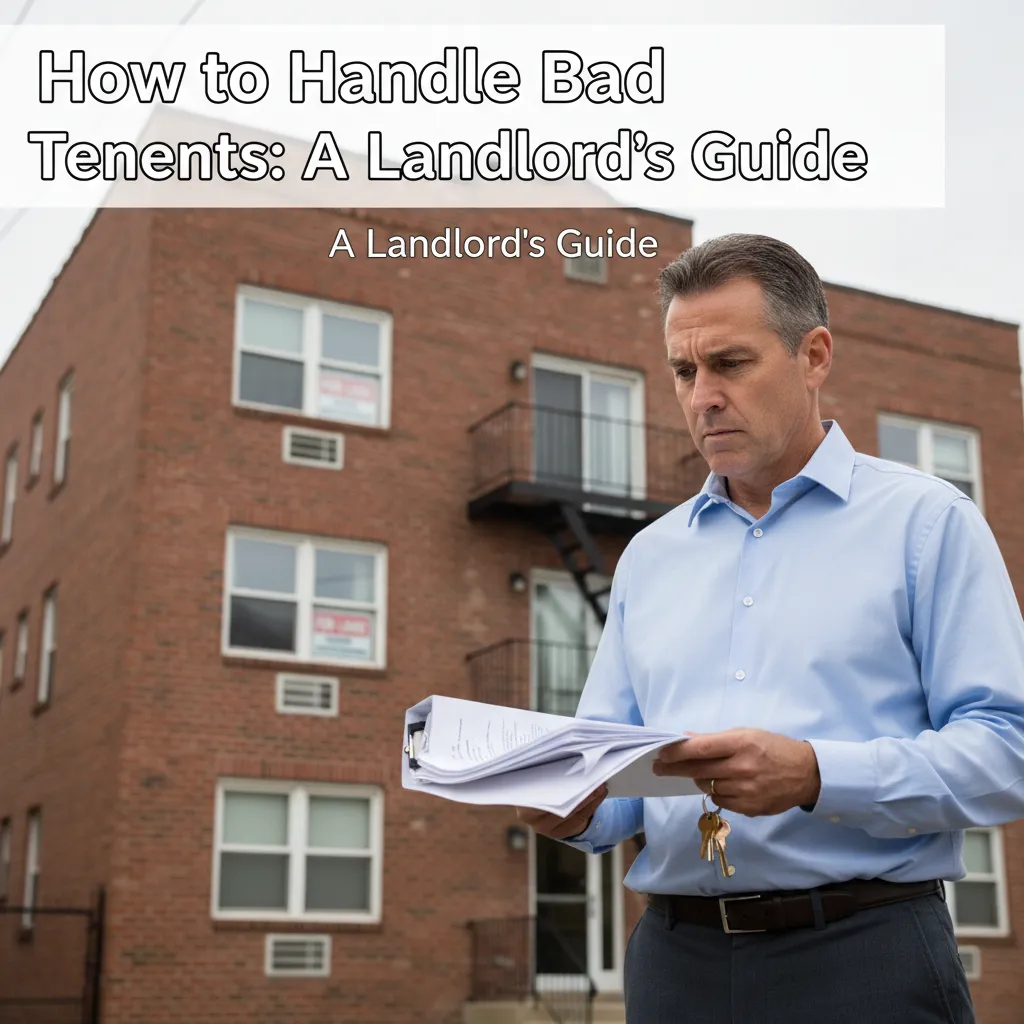
How to Handle Bad Tenants: A Landlord’s Guide to Protecting Your Investment
Outline:
Introduction
Identifying Bad Tenants Early
Common Challenges with Difficult Tenants
Legal Rights and Responsibilities of Landlords
Effective Screening Processes to Avoid Bad Tenants
Steps to Take When You Have a Problem Tenant
When and How to Evict Legally
Tips for Maintaining Positive Landlord-Tenant Relationships
Conclusion and Resources for Landlords
Full Blog Article:
How to Handle Bad Tenants: A Landlord’s Guide to Protecting Your Investment
Dealing with bad tenants is one of the most challenging aspects of being a landlord or real estate investor. Whether it’s late rent, property damage, or disruptive behavior, problem tenants can cause financial loss and stress. Understanding how to identify, manage, and legally handle bad tenants is crucial to protecting your investment.
Identifying Bad Tenants Early
The best way to avoid issues is to recognize warning signs before they escalate. These may include:
Late or inconsistent rent payments
Frequent complaints from neighbors or other tenants
Neglect or damage to the property
Violations of lease terms
Common Challenges with Difficult Tenants
Bad tenants can cause problems such as:
Unpaid rent and eviction delays
Property damage requiring costly repairs
Legal complexities and court appearances
Impact on other tenants and neighbors
Legal Rights and Responsibilities of Landlords
Knowing your legal rights is essential. Landlords must:
Follow fair housing laws and proper eviction procedures
Provide habitable living conditions
Serve notices properly and respect tenant rights
Effective Screening Processes to Avoid Bad Tenants
Prevention is key. Implement screening steps such as:
Credit and background checks
Employment and income verification
Contacting previous landlords for references
Steps to Take When You Have a Problem Tenant
If issues arise, consider:
Communicating clearly and documenting all interactions
Offering payment plans or mediation when appropriate
Monitoring the situation closely
When and How to Evict Legally
Eviction should be a last resort but sometimes necessary. Follow these guidelines:
Serve proper written notice according to local laws
File eviction paperwork correctly
Attend hearings prepared with documentation
Tips for Maintaining Positive Landlord-Tenant Relationships
Good relationships reduce problems. To foster these:
Maintain open communication
Respond promptly to repair requests
Set clear expectations upfront
Conclusion and Resources for Landlords
Bad tenants can threaten your rental business, but with proper screening, communication, and legal knowledge, you can protect your property and peace of mind.
For more advice or help managing difficult tenants, reach out to our team. We’re here to support real estate investors with practical solutions.
